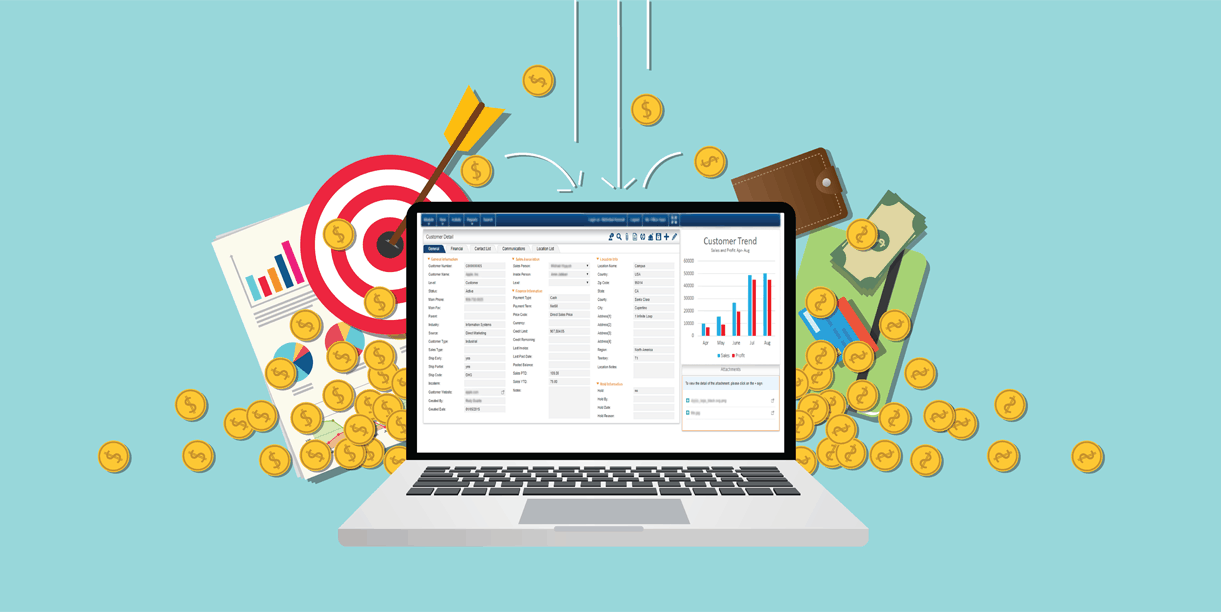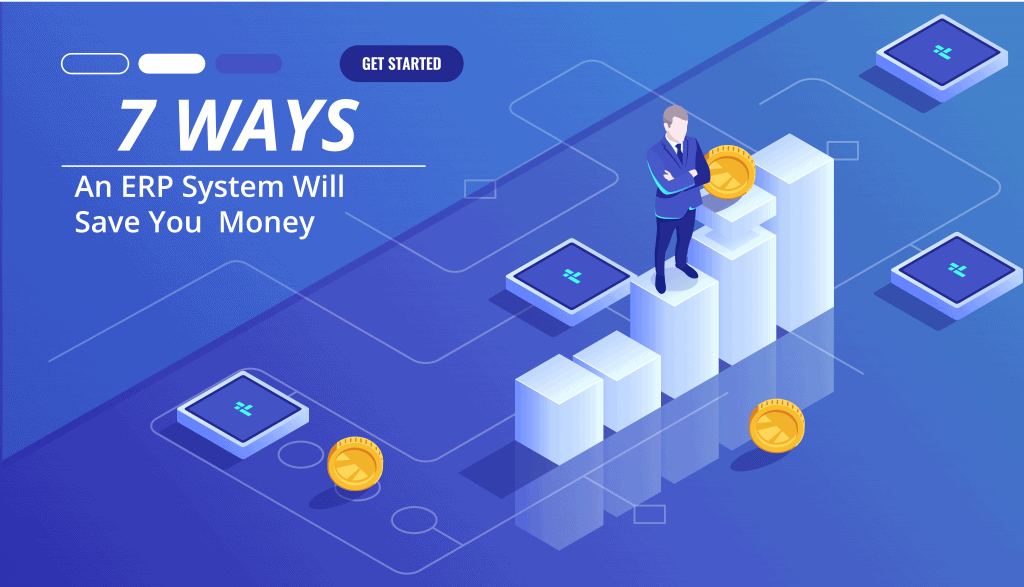How Exactly Does an ERP System Save You Money?
Do you ever have waste stock at the end of a season? Have your suppliers continuously let you down? Do you know exactly how many products you have in your inventory at any one time?
An ERP system covers everything in a distribution company from customer records to inventory and stock management. The clear at-a-glance overview for any part of the business at any time means you can have a real-time understanding of your business success and opportunities.
If you haven’t installed an integrated enterprise resource planning system in your warehouses, for your drivers, or in your office headquarters, you’re burning money that could be profitable.
Keep reading to find out exactly how ERP software will save your business money.
What Is an Enterprise Resource Planning System?
An enterprise planning resource (ERP) system is designed to smooth and speed up operations for small and medium sized businesses.
The software comes with a range of modular applications, each with unique benefits for different areas of the business. These applications talk to each other too, so that data is easily shared and interpreted across the business whenever required.
Seven Ways an ERP System Will Save You Money
Installing ERP software doesn’t come cheap. Even an off-the-peg solution will take time to transfer data and train your staff. The initial cost will often make business owners think twice about investing.
However, the long-term financial and efficiency benefits far outweigh the installation costs. Here are just a few of the ways ERP will save your business money consistently over time:
1. Clear Processes and Real-Time Working
Each department does things differently, and every new employee inherits legacy systems and documents that they will often change themselves over time.
Including everything on an ERP system standardizes your procedures and documents. No more time is wasted looking for the right contract or supplier details, and everything is focused on getting the job done as fast as possible.
Cloud working means your delivery drivers can operate from their mobile devices to provide real-time updates. Your satellite warehouses can see at an immediate glance if another warehouse has a stock item that it requires. A new member of staff can learn the software even while on-the-go in the field, without time wasted in an office.
ERP Cloud working means your processes are simple and fast to learn. Your staff can access the system anywhere in the world, at any time. There is no need to wait for human updates to order progress: it’s all right there online for your staff to see.
2. Fast Updates With Minimal Downtime
Working in the Cloud means the software isn’t separately installed on every device. Instead, the access to it is installed and the software sits on a remote server.
This means that any software updates result in minimal downtime. You won’t need to recall every mobile device, or shut down office computers one by one, to install large updates. Instead, an update is done online once by the ERP provider, and it is ready whenever someone next logs in from any device.
3. Easy Reporting for Better Financial Management
ERP systems allow you to generate easy to understand visual reports that are geared towards a specific audience. You can, for example, provide general performance overviews with a series of graphs to show at your monthly management meetings.
Your financial reports to your company board, on the other hand, can be put together in detail and in a short time. The drill-down structure of ERP reporting means you can control who sees which data sets, so you’re only presenting the most relevant information. This minimizes the time spent creating reports and also the time taken for those reading the information to understand them.
As well as at-a-glance real-time reporting, ERP software allows you to have a better understanding of your financial forecasts. You will be able to see where money is currently wasted or budgets are underused, and you can monitor stock demand to invest wisely on a more seasonal basis.
4. Reduced Admin Costs
Your business will undergo several audits every year. Each audit takes time to generate a paper trail, whether you’re demonstrating your commitment to quality management or showing the tax man your annual figures.
The administration costs behind audit preparation are huge. An ERP system generates logs every time a record is altered. This means a clear audit trail can be created and exported in no time at all.
Integrated ERP also allows limited access to the relevant data for a job role. This saves time and improves confidentiality.
The use of ERP for record keeping and inventory management also reduces the margin for human error. Unlike a spreadsheet, which can be altered and saved over, the ERP software will recognize an invalid entry and flag the problem before it can be saved in the system.
5. Improved Stock Control
Knowing your seasonal stock demands will help you to reduce unnecessary storage space, minimize stock wastage, and improve your materials forecasting.
Warehouse inventory management is much easier with ERP, as real-time stock updates mean anyone can see the exact inventory status of every warehouse you have, anywhere in the world.
Easier warehouse management with a clear real-time stock overview for all warehouses anywhere in the world. Clear reporting for better stock forecasting reduces costs on warehouse space by allowing you to anticipate seasonal demand.
6. Better Supply Chain Management
Do you know when your supplier contracts are up for renewal? Can you tell how many times they have let you down with late deliveries?
Supplier problems cost your business time, money, and customers. An ERP program will help you to keep track of your service level agreements, identify regular problems, and improve supplier relationships.
You will be able to spot the common sticking points. For example, do you give your suppliers a long enough lead time to deliver, or do they often fall short due to your short timescales? Using data analysis like this will help you to speed up deliveries and minimize delays caused by common supply chain problems.
7. Customer Relationship Management
A 5% increase in customer retention has been shown to improve profitability by up to 75%.
Keeping your customer records in one place, including every phone call, email, and order means you can see the status of any customer at a glance. This will immediately improve customer service, as anyone speaking to a customer will be able to see a complete history and deliver a tailored response to queries.
Further customer service improvements in enterprise planning software can be seen through more targeted marketing opportunities. You will be able to send concise marketing messages that are relevant to more specific customer groups, using segmented data from the ERP software. This will reduce your overall marketing spend but improve the ROI.
See What ERP Software Can Do For You
An ERP system usually comes in a package, so it’s not modular by nature. This means you can’t pick and choose which elements you need based on your business requirements and processes. With the right ERP provider, it can be catered to the individual company on a modular basis, eliminating the packages, and extra software a company isn’t looking for.
Contact MyOfficeApps today to find out more about enterprise planning software and how it will save your business money time and again.


